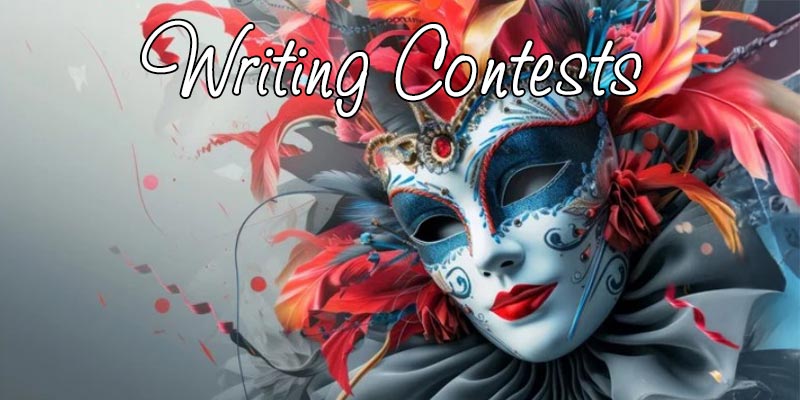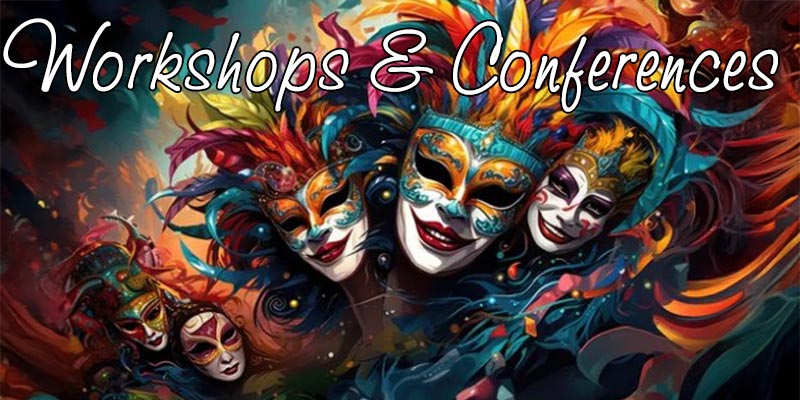
The site for writers of all genre, and the readers who love them. Find what you want to know.
8 Best Writing Tips to Become a Best Storyteller

Readers love a good story. What makes a good story? It’s the details. The little things that make a big difference when it comes to writing. Writing is not as simple as it sounds, especially if you want to become an author one day. You need to learn how to create characters and their personalities, build the plot, and add in some subplots too.
You also need to think about the setting, what your characters are wearing, and all those minor details that come into play when you’re reading a book. If you’re ready to take your writing skills up a notch, then keep reading for some useful tips on becoming a better storyteller.
1. Know Your Audience
Before you even sit down to write, you need to know who you’re writing for. Their age range, gender identity, ethnicity, and even their socio-economic status. This will help you tailor your writing style to match your readership. You don’t want to write something too complicated for children or something that’s too simplistic for adults. It is not something like giving lectures or a formal speech; your tone must be friendly to appeal the audience.
You should also know how many pages you’re supposed to write for each age range. Reading comprehension varies from child to child, so if you want to write for younger audiences, then you’ll want to keep it shorter and simpler. If you want to write for older audiences, then you can go into more detail.
2. Research, Research, Research
The best way to make your story believable is to get your facts right. Researching the setting, what your characters are wearing, and even their food and drink of choice. Whatever it is that you’re writing about, make sure you get it right. If you’re writing historical fiction, then you’ll want to check out some history facts to help you get it right.
If you’re writing something set in the modern day, then you can make use of online fact checkers to make sure you’ve got the details spot on. You can also make use of Google search to find images related to the topic you’re writing about. This will help you to get a better visual of what you’re writing about, and it will also make it easier for you to add the correct details into your story.
3. Dialogue Is Key
As a writer, you want your readers to be invested in your story. One of the best ways to do this is to make use of quality dialogue. This will help you to establish your characters’ personalities as well as their relationships with one another. It also helps to move the plot along so it’s not just a series of events that led nowhere. Make sure that you know the difference between exposition, which is when your characters are explaining something, and the dialogue.
Exposition is great for moving the plot along, but dialogue is what keeps your readers interested. If you’re not sure how to write dialogue, then make use of the internet. There are some great dialogue examples out there that will help you get a better idea of how to write great dialogue.
4. Show, Don’t Tell
This is a big part of writing, especially if you’re writing in the third person perspective. You don’t want to be telling your readers how your characters feel or what they’re thinking. Instead, you want to show them. This means that you should be using action, imagery, and dialogue to help readers understand your characters better.
It also means that you should be using the 5 senses when writing about your characters or setting. You want your readers to feel like they’re actually there. This will make your story more immersive and will help to keep your readers interested.
5. Be Descriptive
As we’ve already mentioned above, you want to describe your characters and settings as much as you can so that your readers can truly visualize them. This will also make it easier for you to write your story. You don’t want to run into a problem where you’re unsure about how something should look or sound.
Be descriptive with your characters’ clothing, their surroundings, and the sounds they’re making. This will help you to write your story faster, and it will also make it easier to edit once you’ve finished writing. If you’re struggling to come up with ideas on how to describe your characters and settings, then check out some books for inspiration.
6. Use the 5 Senses
As we’ve already mentioned above, you want to make use of the 5 senses when writing your story. You want your readers to feel like they’re actually there. This will make it easier for them to visualize your story and will help them stay immersed in it. If you’re writing from a first-person perspective, then you can also use the 5 senses to describe yourself. This will help your readers get to know your character better and will also help to move the story along.
7. Be Relatable
As writers, you want your readers to be invested in your stories, but you also want to be relatable. This means that you need to make sure that your characters aren’t too perfect. Readers will have trouble relating to a story if they don’t have anyone to relate to.
If you’re writing a story about a teenager, then make sure that your character isn’t the most popular kid in school, the smartest kid in school, or the kid with a perfect life. Your readers want to be able to relate to your characters, so make sure that they’re relatable.
8. Don’t Be Afraid to Experiment
Writing is more than just sitting down and putting pen to paper. You need to be a creative person and to be able to come up with new ideas. This is where experimenting comes in. If you’ve ever written a story, then you know that it can sometimes feel like a never-ending cycle. You write a couple of chapters, and then you hit a roadblock and can’t move forward.
This is when it’s time to experiment. You don’t want to force yourself to write something that isn’t coming naturally to you. Instead, take a break. Do some research, write something else, or do something else creative to get your brain going again. Writing is a skill that takes time to master, so don’t expect to be writing best-sellers after a couple of months. This is a skill that will take years to master, but with these best writing tips, you can become a better storyteller.
AGENTS & EDITORS
- Agents: Knowing When To Hold One and When To Fold
- Copyright Primer, Know Your Rights
- Getting Offers from Multiple Literary Agents
- Landing An Agent Elements Of A Winning Query
- Literary Agents List
- Preditors and Editors
- Publishing, Writing Terms, Acronyms
- Tips for a Successful Editor Appointment
- Want More? Here’s How to Get It
- What NOT to Do When Beginning Your Novel
- Windup for the (Story) Pitch
- Write the Perfect Book Proposal
CALLS FOR SUBMISSIONS
![]()
CALLS FOR SUBMISSIONS MAIN PAGE
- 2026 FEB Calls for Submissions
- 2026 JAN Calls for Submissions
- 2025 DEC Calls for Submissions
- 2025 NOV Calls for Submissions
- 2025 OCT Calls for Submissions
- 2025 SEP Calls for Submission
- 2025 AUG Calls for Submission
- 2025 JUL Calls for Submission
- 2025 JUN Calls for Submission
- 2025 MAY Calls for Submission
- 2025 APR Calls for Submission
- 2025 MAR Calls for Submission
- 2025 FEB Calls for Submission
CHARACTERIZATION
CONFLICT
DIALOGUE
GRAMMAR & FORMATTING
![]()
GRAMMAR & FORMATTING MAIN PAGE
- Achieving 250 Words / 25 Lines Per Page
- And Sammy, Too? Oh, No!
- Changing Double Hyphens to EM Dashes in Word
- Edit Easier
- High Hopes–Avoiding Common Mistakes
- Misused Words
- Navigating In Your Novel
- Proofreaders Marks
- Research Links
- Rules for Writers
- Slang and Jargon Souces
- Tightening Your Manuscript and Trimming the Word Count
JOBS / MARKETS
- 3 Ways to Make Your Non-Fiction Article Pitch Stand Out
- 35 Online Work Ideas to Earn Good Money Whilst Studying
- An Interview with Holly Ambrose
- Beyond the Basics
- Copyright Primer, Know Your Rights
- Finding Markets Fiction and Nonfiction
- Freelance Writing 101
- Getting Offers from Multiple Literary Agents
- How To Market Your Book After You’ve Written It
- How to Write a Novel Synopsis
- How To Write Your Own Press Releases
- Magazine Links
- Making Money As a Corporate Freelancer
- Market News–All Genres
- Need a Clip? Open a Newspaper
- Newspaper Writing Resources
- Publisher’s Websites
- Selling to Children’s Markets
- Submitting to UK Markets
- Syndication 101
- the Power of the Press
- To Specialize, or Not to Specialize?
- Ultimate Guide to Being a Freelancer 2025 Update
- What Are Your Chances of Getting Published?
- Why Article Writing Should Be A Part Of Your Career Development Strategy
- Why E-Books?
- Write the Perfect Book Proposal
- Write Your Way to $1000 a Month
- Youth Writing Markets
PLOTTING
- 3 Ways to Know When to End Your Chapters
- 7 Excellent Plotting Tips from Agatha Christie
- 7 Ways to Add Great Subplots to Your Novel
- 8 Best Writing Tips to Become a Best Storyteller
- Does Your Plot Need a Subplot?
- Love to Write: Here Is How You Can Build Your Career
- Slang and Jargon Souces
- The All Purpose Plot
- Turning Points and Plot Points in Storytelling
- What NOT to Do When Beginning Your Novel
- Writing the Novel by the Numbers
POINT OF VIEW
QUERIES & PROPOSALS
- Agents: Knowing When To Hold One and When To Fold
- Getting Offers from Multiple Literary Agents
- How to Write a Novel Synopsis
- Landing An Agent Elements Of A Winning Query
- Path to Self-Publishing Success
- Publisher’s Websites
- Publishing, Writing Terms, Acronyms
- Science & Science Fiction Writing Organizations
- Submission Tracking
- Surviving a Book Proposal
- Windup for the (Story) Pitch
- Write the Perfect Book Proposal
- Writing a Synopsis & Query Letter
SUBMISSIONS
- Agents: Knowing When To Hold One and When To Fold
- An Interview with Jack Fisher
- Copyright Primer, Know Your Rights
- EBooks-Fears to Possibilities
- How to Write a Novel Synopsis
- Literary Agents List
- Path to Self-Publishing Success
- Publisher’s Websites
- Publishing, Writing Terms, Acronyms
- Science & Science Fiction Writing Organizations
- Selling to Children’s Markets
- Submission Tracking
- Surviving a Book Proposal
- What Are Your Chances of Getting Published?
- Write Your Way to $1000 a Month
- Writing a Synopsis & Query Letter
- Youth Writing Markets
SYNOPSIS
TIP SHEETS & GUIDELINES
![]()
TIP SHEETS & GUIDELINES MAIN PAGE
- Achieving 250 Words / 25 Lines Per Page
- Changing Double Hyphens to EM Dashes in Word
- Copyright Primer, Know Your Rights
- How To Write Your Own Press Releases
- Knowing and Finding Your Voice
- Plan for Success
- Publisher’s Websites
- Science & Science Fiction Writing Organizations
- What NOT to Do When Beginning Your Novel
- Why E-Books?
- Working with a Critique Group
WORKSHOPS & CONFERENCES
WRITING CONTESTS
![]()
ABOUT WRITING CONTESTS
- A Guide to Assessing Writing Contests
- Writer’s Conferences Do You Really Need To Attend?
- Writing Groups List
- 2026 FEB Writing Contests
- 2026 JAN Writing Contests
- 2025 DEC Writing Contests
- 2025 NOV Writing Contests
- 2025 OCT Writing Contests
- 2025 SEP Writing Contests
- 2025 AUG Writing Contests
- 2025 JUL Writing Contests
- 2025 JUN Writing Contests
- 2025 MAY Writing Contests
- 2025 APR Writing Contests
- 2025 MAR Writing Contests





